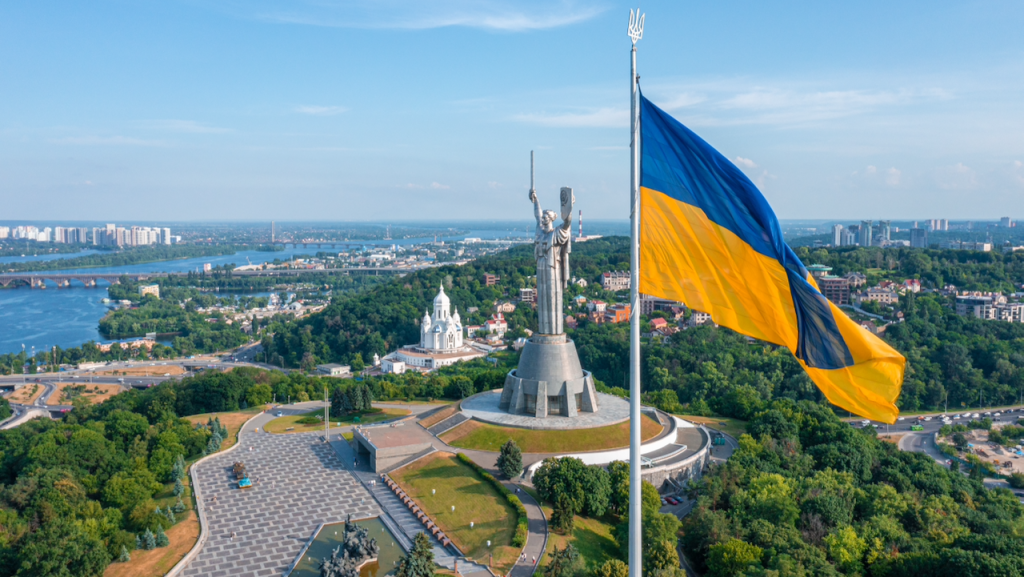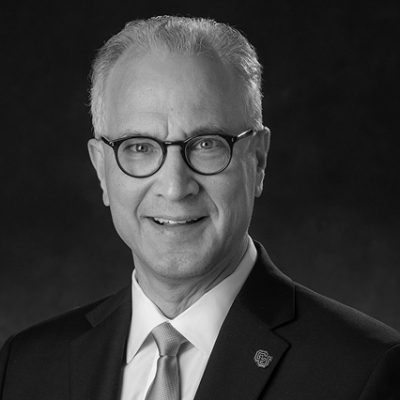Fragmentation Is Failure: How Alliance Disunity Hands the Digital Future to Beijing

Later today, President Zelensky will meet with President Trump in Washington, accompanied by European leaders, for what may prove a pivotal moment in shaping the path to peace in Ukraine. Much of the attention will focus on whether the talks produce immediate concessions or credible guarantees. But the deeper question is how any agreement should ultimately be judged—not simply by whether it pauses today’s fighting, but whether it prevents tomorrow’s aggression.
The recent U.S.–Russia summit in Alaska underscored a hard reality: peace is never achieved by words alone. It must be forged from strength and secured through allies.
Ukraine today stands at one of the most decisive frontiers of freedom in our generation. How this war ends will determine whether borders in Europe are fixed by democratic consent or redrawn by authoritarian force—a precedent that will echo far beyond Kyiv.
Vladimir Putin has demonstrated repeatedly that he does not compromise out of goodwill. He only shifts course when confronted with battlefield losses, economic pressure, or a united allied front. Every concession Russia has made since its invasion has come after setbacks Moscow could not ignore. Peace is not the absence of conflict but the product of credible deterrence—diplomacy backed by strength.
Strength on the Battlefield
Durable peace requires convincing Moscow that further aggression is futile. That means ensuring Ukraine has the means to resist today and deter tomorrow. Advanced defenses and steady munitions are not escalatory—they are the leverage that forces Russia to negotiate.
History offers sobering lessons. The Korean Armistice was signed not because adversaries trusted each other, but because battlefield dynamics created a stalemate neither side could break. Likewise, Putin will only consider peace once convinced that continued war will cost more than compromise.
Strength in the Economic Domain
Military resolve must be paired with economic pressure. Russia’s war machine is funded by energy sales, evasion networks, and sympathetic partners. Enforcing sanctions matters more than announcing new ones. Closing oil-trading loopholes, tightening access to Western technologies, and cutting off shadow supply chains all reduce Putin’s capacity to sustain aggression.
But economic pressure alone is not enough. Peace also depends on the economic and technological foundations of security. Democracies must coordinate on critical supply chains, digital standards, defense industrial base, and energy networks that underpin both prosperity and defense. If democracies stand firm, they will show that resilience, cooperation, and alliance modernization are the building blocks of peace.
Allies as Guarantors
Putin thrives on division. The Alaska summit has already tested transatlantic cohesion, with Europeans uneasy that Washington might rush toward a settlement on Moscow’s terms. If allies fracture, Putin’s strategy succeeds.
Peace requires the opposite: a unified democratic front. Security guarantees for Ukraine must be developed together. They must strengthen, not limit, Ukraine’s sovereignty. And for Europe to be a genuine partner in securing peace, its recent commitments to strengthen defenses must become tomorrow’s reality.
An Inkblot, Not a Leapfrog
The U.S. interventions in Iraq and Afghanistan were “leapfrog” attempts to implant democracy in regions with little fertile ground for it to take hold. Ukraine is different. It is an “inkblot” opportunity—where democracy can spread outward from existing strongholds if defended. A retreat from supporting freedom in Ukraine would be far more damaging than the retreat from Afghanistan.
The courage and commitment of the Ukrainian people have shown their resolve. Their ingenuity is producing one of the most capable partners in today’s strategic competition. Supporting Ukraine is not an act of charity, but the cultivation of an essential partner.
The Call for Leadership
In 2014, as Putin’s first assault on Ukraine unfolded, I wrote in Foreign Policy that the U.S. must step up and confront his aggression. Had that call been heeded, the full-scale invasion of 2022 might never have occurred. I argued again in 2023 that without U.S. support, Putin would feel emboldened. Both lessons converge today: unless Putin is convinced that American and allied support will endure, he will have no incentive to accept peace.
Judging Peace
Putin will not agree—or adhere—to peace unless he believes rejection brings greater Western support and a worse battlefield result. At the same time, any settlement must be anchored in firm, enforceable guarantees. Ukraine has already lived through the failure of empty assurances, having surrendered the world’s third-largest nuclear arsenal in 1994 under the Budapest Memorandum only to be invaded by Russia two decades later. This time, guarantees must be backed by credible military, economic, and political commitments so that Putin knows renewed aggression would leave him weaker, not stronger.
Any peace must be judged not by ending today’s war but by preventing tomorrow’s. Since 2014 I have warned that unchecked Russian advances invite more adventurism. A settlement that rewards aggression would embolden Putin and others; one that enforces deterrence can secure lasting peace.
Negotiators must also remember the lesson of the Sudetenland. In 1938, ceding fortified territory in the hope of avoiding war dismantled Czechoslovakia’s defenses and emboldened further aggression. The Donbas today serves a similar role for Ukraine—a fortified shield against further invasion. To concede it would weaken Ukraine’s defenses and embolden Putin to demand more.
Containing Russia now is cheaper and safer than confronting it later under NATO. And what happens in Ukraine doesn’t stay in Ukraine—Beijing, Tehran, and Pyongyang are all watching to see if aggression pays.
Peace requires strength. Peace requires allies. And peace requires recognizing that in Ukraine today, we face one of the defining frontiers of freedom of our generation.
Author
Mark Kennedy
Director & Senior Fellow
